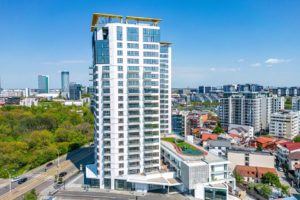Colliers study: 90 percent of nonfood retailers expect turnovers for 2020 to be affected by COVID-19, but landlords are supportive

Nonfood retailers are among the most affected by measures taken during the state of emergency to prevent the spread of COVID-19. 45 percent of retail tenants expect over 30 percent decrease of their turnover in 2020 and another 39 percent foresee up to 30 percent declines as a result of these at least 2 months of no trading, with slow recovery expected in the second half of this year, according to a study conducted by Colliers International’s Retail Division among 84 tenants and 21 landlords from the retail sector in Romania.
Retailers’ reaction to the government’s decision to close non-essential stores was immediate and in order to minimize impact of the current context. As a result, 62 percent of tenants suspended or delayed rental and utilities payments and 52 percent applied for rent reductions when stores will be reopened, according to Colliers International’s study among retail tenants active mainly in fashion, food and beverage, cosmetics, services, entertainment, services or beauty. In addition, to support business recovery, 88 percent applied for the technical unemployment facility, 48 percent will use the tax payment delay offered by the state and 33 percent will suspend the financing payments until the end of year.
On the other hand, 67 percent of retailers are concentrating to compensate for the loss from the brick and mortar presence with alternative sale channels, but only part of the loss is expected to be recovered though this channel. About 36 percent expect online sales to grow this year, of which half count on at least 20 percent increase. However, 22 percent of retailers believe sales will decline even on this channel, due to low consumption appetite.
First signs of recovery in the retail market are expected starting with Q4 2020, but with more consistent results in 2021, which shows that both retailers and landlords are confident in a relatively fast recovery.
“The assumptions are that if income levels of the vast majority of employees will not be significantly impacted and retail will be fully open starting with 1st of June, there will be mainly a psychological rebound on medium term. A slow recovery should be felt starting with autumn and continued with Christmas, which is the most important period of the year from the retail sales perspective. This means that if the population’s purchase power will not decrease, the tendency will be to save more on the short term, but starting with September consumption should slowly pick up in the usual retail segments such as fashion, food & beverage, cosmetics, toys or stationary”, says Simina Niculiță, Partner & Head of Retail Agency at Colliers International.
More exactly, 67 percent of landlords and 51 percent of tenants expect to return to satisfactory business levels compared to levels before the Covid-19 epidemics by the end of 2021.














